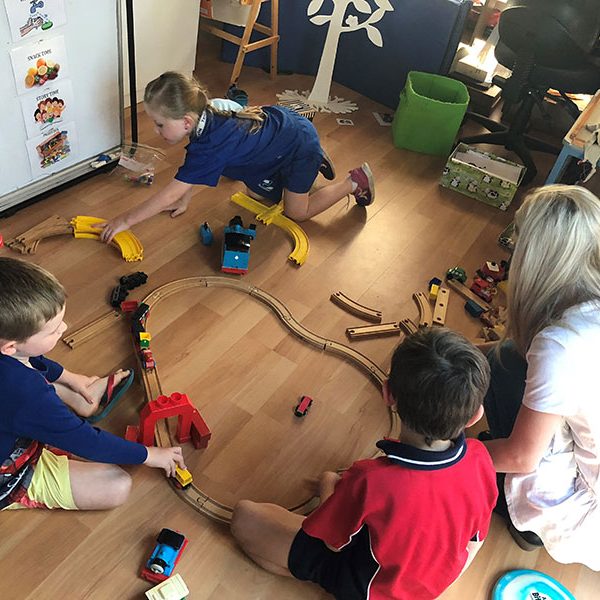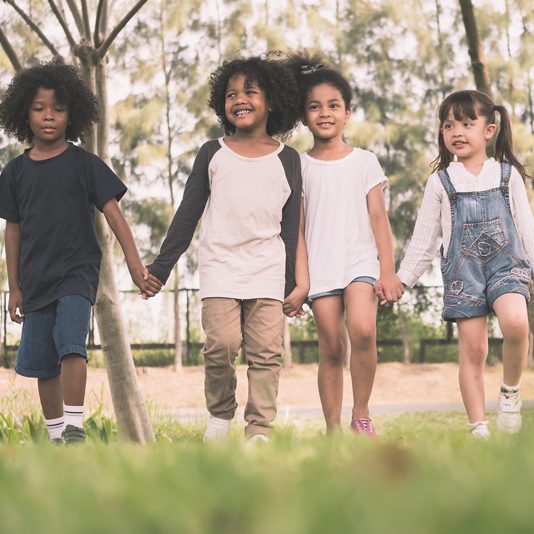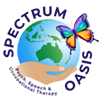Diagnosis
- An initial consultation is carried out (with parents who are seeking a diagnosis for their child or an adult seeking a diagnosis) to help you with choosing the best path to follow and for you to gain important knowledge and information. Please bring any assessment information from other specialists to this initial consultation.
- A series of assessment psychology sessions follow (typically 3-5), which involve the completion of several best-practice assessments.
- Further assessment such as a school visit, a cognitive, Occupational or a Speech assessment may also be required.
- On completion of assessment psychology sessions an appointment with your psychologist is carried out to discuss the outcome and recommended treatment plan.
- Typically, you will be required to take this report to a paediatrician or psychiatrist to review and they will make the final recommendation regarding a formal diagnosis.

Individual, Group, and Family Therapy
Therapy sessions are typically 55 minutes once a week or fortnight. Your practitioner will conduct a thorough assessment to establish an effective treatment plan.
We offer clinic, home, school, and online therapy sessions for a range of educational, behavioural, social, cognitive and emotional challenges.
Groups are individualised and tailored according to the individual needs of the person. Parents and teachers are involved in initial goal setting and receive ongoing feedback and strategies throughout the duration of each program.
Social Skills and Resilience Groups
At Spectrum Oasis we encourage joining groups because children, adolescents and teens have great fun learning important skills with their peers!
The first step is an initial consultation appointment to determine the goals for your young person attending the group and to ensure that the group is the best option for them. All programs can be modified into individual psychology sessions with a psychologist.
We offer groups for children of all ages:
- Early-Intervention for children aged 18 months to 4 years old
- Social Skills and Emotional Regulation for children aged between 8 and 12 years of age
- Social Skills and Emotional Regulation for teens (13 years and over)
Early-Intervention
- Research strongly indicates Early Intervention is the key to obtaining the best outcomes for your child. Early Intervention is beneficial for all children presenting with challenges whether they are typically developing, on the Autism Spectrum or have a Developmental Disability. We provide individual or group therapy for children as young as 18 months of age.
- Following an assessment of your child’s individual abilities and interests we are able to help you determine which of our range of services would be most beneficial.
- Our range of services include: Individual and Group therapy to develop play, friendship, learning, and communication skills; Parent, carer, and teacher education; Behaviour therapy based on the principals of Applied Behaviour Analysis and best-practice treatment techniques (e.g., for helping with emotional meltdowns, aggression, anxiety, attachment difficulties, fears, and self-harm); and; Occupational Therapy.

Early Education and Life Skills
Education and Life Program: This program was developed to teach children important educational and daily life skills:
- Play and friendship skills
- Resilience skills
- Communicating skills
- Coping with transitions and stressful events
- Following directions
- Classroom behaviours
- Learning how to learn with success
This program is run in small groups (3-6 children) and focuses on the needs of children aged between 5-7 years of age. A parent session, and teacher feedback is completed prior to your child commencing, which ensures the independent development and tailoring of program content to meet each child’s behavioural and social requirements.

Social Skills and Emotional Resilience for 8-12 year olds
The Secret Agent Society (SAS) Social Skills Training Program developed by Dr Renae Beaumont, aims to improve the social skills and emotional understanding of high-functioning 8 to 12 year old children with Autism Spectrum Disorder (ASD). The Program provides a fun, engaging and non-threatening environment for a group of approximately six children on the Spectrum.
Results from a randomised controlled trial revealed that children with High-Functioning Autism, who completed the SAS program showed significantly greater improvements in social skills and emotion regulation at home and at school than children who received treatment as usual for the two-month intervention period, and treatment gains were maintained five months after the program ended.
PROGRAM Aims
The SAS Program differs from other social skills programs by specifically addressing the social skill struggles that are often experienced by children with High-Functioning Autism.
The SAS Program includes step-by-step formulae for targeted socials skills, specifically aimed at:
- Understanding that emotions exist on a continuum (rather than being “all or nothing” phenomenon)
- Identifying emotions from physical body clues
- Identifying simple and complex emotions (e.g. embarrassment, confusion, teasing, sarcasm, and boredom) in others from face, body, voice and situational clues
- Coping with feelings of anxiety and anger
- Understanding what it means to be a good friend
- Talking and playing with others
- Coping with making mistakes, changes in routine and feelings of confusion or uncertainty
- Solving social problems
- Distinguishing accidents and friendly jokes from intentional nasty deeds
- Dealing with bullying and teasing
For Details on this program please click the image below.
Social Skills and Emotional Resilience for Teens
Our Teen Program aims at covering the following essential life skills, which will see their journey through adolescence to adulthood as successful, and nourished with positive experiences.
An initial one on one session is completed with parents and teens, which ensures the independent development and tailoring of program content to meet each person’s individual goals.
- Developing positive self-esteem and resilience skills
- Choosing positive role models and friends
- Coping with disagreements and negative experiences
- Dealing with bullying, and negative gossip/teasing
- Social communicative skills
- Problem solving and managing anger and anxiety
- Goal setting and choosing positive rewards for self
- Making responsible choices (current issues explored, such as cyberspace)



